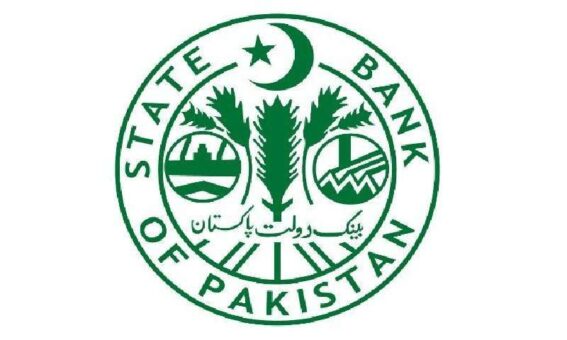In a move to streamline and regulate the process of money remittance through prepaid cards, Pakistan has unveiled the tax rates for 2024.
(more…)Tag: credit card
This tag provides stories related to credit card. Pakistan Revenue is committed to provide updated news article on credit card as those appear.
-

Tax Rates on Foreign Transactions via Credit or Debit Cards Unveiled for Tax Year 2024
Tax rates on foreign transactions through credit or debit cards have been unveiled for tax year 2024 by the Federal Board of Revenue (FBR).
(more…) -

Pakistan Extends Interbank Dollar Purchases for Card Payments
Karachi, August 1, 2023 – The State Bank of Pakistan (SBP) announced to extend the settlement of card-based cross-border transactions through interbank for an additional five months.
(more…) -

Bank blocks credit card but charges renewal fee; BMP takes action
KARACHI: Banking Mohtasib (Ombudsman) Pakistan (BMP) has taken action against a bank for block credit card of a retired person but charged annual renewal fee.
(more…) -

Pakistan banks may issue corporate cards for cross-border commercial payments
KARACHI: State Bank of Pakistan (SBP) has allowed banks to issue corporate cards to their business customers for making cross-border commercial payments.
The SBP through a circular dated November 08, 2022 issued to presidents and chief executives of authorized dealers (ADs) in foreign exchange said that banks desirous to facilitate their business customers may issue corporate cards, to be used strictly in accordance with the applicable provisions of the Foreign Exchange Manual and the profile of the customer. “ADs shall institute a robust mechanism to monitor the payments through such corporate cards,” the SBP added.
READ MORE: State Bank, NBP to withdraw petitions in Riba case: Ishaq Dar
According the circular the central bank had observed individuals were using their debit/credit cards for cross-border transactions, which are of commercial nature and are not aligned with their personal needs as well as their risk profile.
In order to ensure judicious use of cards, including virtual cards, it has been decided to place an annual limit of $30,000 per individual on card based cross-border transactions. For the purpose of this circular, the year will start from November 1, 2022, however, limit for the current year will be calculated from the date of issuance of this circular. This limit would be applicable for an individual across the banking industry.
READ MORE: State Bank launches environment, social risk management manual
The SBP advised the banks to conduct proper due diligence of the individual customers at the time of their onboarding/ update of risk profiles and duly incorporate their cross-border payment needs through cards in their profiles.
Banks are also directed to ensure that issuance of multiple cards to a single customer are commensurate with their risk profile and are monitored collectively. Further, banks should only allow those card based cross-border transactions, which are in-sync with the personal needs of the customers and have no commercial purpose.
READ MORE: SBP limits cash up to USD 5,000 taking out of Pakistan
Although, it is the primary responsibility of a customer to ensure that his/ her annual limit is not breached at any time, ADs shall institute a mechanism of ongoing monitoring whereby card based cross-border payments by individuals through single/multiple cards are only allowed in accordance with the limit prescribed above and as per the risk profile of the customer.
Besides, ADs are advised to run an awareness campaign to inform their customers about the contents of this circular and the fact that cross-border commercial payments through cards issued to individuals are not permissible.
READ MORE: SBP, FIA jointly take action against illegal exchange companies
ADs are advised to ensure meticulous compliance of these instructions and bring the same to the notice of all their constituents. Any non-compliance of above instructions may be dealt with under relevant provisions of the Foreign Exchange Regulation Act, 1947 and any pecuniary or administrative action, as deemed necessary, may be initiated against the delinquent ADs.
-

Pakistan reintroduces advance tax on foreign payments
ISLAMABAD: Pakistan has reintroduced advance tax on foreign payments made through credit, debit or prepaid cards. The advance tax has been revived through Finance Bill, 2022.
The country presented its federal budget 2022/2023 on June 10, 2022 and made several amendments in tax laws to broaden tax base and plug revenue leakages.
READ MORE: Exchange companies to withhold tax on payment to MTOs
The Finance Bill, 2022 proposed to reintroduce Section 236Y of the Income Tax Ordinance, 2001. The section was omitted through Finance Act, 2021.
Following is the proposed amendment in the Income Tax Ordinance, 2001:
READ MORE: Salaried persons denied adjustments against deduction
“236Y. Advance tax on persons remitting amounts abroad through credit or debit or prepaid cards.—(1) Every banking company shall collect advance tax, at the time of transfer of any sum remitted outside Pakistan, on behalf of any person who has completed a credit card or debit card or prepaid card transaction with a person outside Pakistan at the rate specified in Division XXVII of Part IV of the First Schedule.
READ MORE: New ADR mechanism introduced to facilitate taxpayers
(2) The advance tax collected under this section shall be adjustable.”
The Finance Bill 2022 proposed advance tax rate on amount remitted abroad through credit, debit or prepaid cards under section 236Y shall be 1 per cent of the gross amount remitted abroad.
READ MORE: FBR to disable mobile SIMs on non-filing of tax returns
-

SBP enhances credit card limits under consumer financing
KARACHI: State Bank of Pakistan (SBP) on Monday enhanced credit card limit by amending regulations related to consumer financing.
The SBP said that It had decided to revise the regulatory limits prescribed in the Para 1 and 2 of the Regulation R-8 of Prudential Regulations for Consumer Financing as under:-
REGULATION R-8
MAXIMUM CLEAN LIMIT FOR CREDIT CARD AND PERSONAL LOAN / FINANCING FROM ALL BANKs/DFIs
EXISTING LIMITS REVISED LIMITS Total Clean Limits
Credit Cards + Personal Loans – Rs2 million
Total Clean and Secured Limits
Credit Cards + Personal Loans – Rs5 millionTotal Clean Limits
Credit Cards + Personal Loans – Rs3 million
Total Clean and Secured Limits
Credit Card + Personal Loans – Rs7 millionPrime Customer
Total Clean Limits
Credit Card + Personal Loans – Rs5 million
[subject to condition that clean limit assigned to a prime customer, on account of, personal loans limit will not exceed Rs2 million]Prime Customer
Total Clean Limits
Credit Cards + Personal Loans – Rs7 million
[subject to condition that clean limit assigned to a prime customer, on account of, personal loans limit will not exceed Rs4 million]The SBP said that the Banks/DFIs may assign clean and secured limits to a single customer up to aforesaid amounts, in aggregate, from all Banks/DFIs.
All other instructions on the subject shall, however, remain unchanged. The Banks/DFIs are advised to follow the regulations in letter and spirit. Any deviation or non-compliance of the same shall attract punitive action under the relevant provisions of the Banking Companies Ordinance, 1962.
-

Foreign transactions through debit, credit cards generate Rs670 million income tax
KARACHI: The revenue authorities have collected Rs670 million as income tax from foreign transactions through debit or credit card during first eight months of current fiscal year.
The tax was collected by Regional Tax Office (RTO)-II Karachi. The tax office collected only Rs83 million in the corresponding period of the last fiscal year.
The collection of withholding tax was introduced through Finance Act, 2018 and it was second year of the collection under this head.
Section 236Y was inserted to Income Tax Ordinance, 2001 through Finance Act, 2018.
Under this provision, every banking company shall collect advance tax, at the time of transfer of any sum remitted outside Pakistan, on behalf of any person who has completed a credit card transaction, a debit card transaction, or a prepaid card transaction with a person outside Pakistan at the rate of one percent.
However, this tax rate shall be 100 percent more in case the person making transactions is not on the Active Taxpayers List (ATL).
The advance tax collected under this section shall be adjustable.
Sources in the tax office said that the provision was introduced to check the outflows of remittances through debt and credit cards.
They said that foreign payments increased phenomenally due to rise in quantum of foreign trade. People were using plastic money to make payments against their foreign purchases.
The sources further said that many importers instead of opening letter of credit were engaged in direct purchases while making payment through credit cards.
The FBR sources said that the purpose of introducing this provision was to check the transfer of money and its source. They said that the tax deducted on such transactions is adjustable.
However, they said that the FBR is monitoring by obtaining information of persons making foreign transactions from banks issuing debit and credit cards.
-

FBR starts examining incomes of debt, credit card holders
ISLAMABAD: Federal Board of Revenue (FBR) has started examining incomes of persons making payments through debt and credit cards.
Sources in the FBR said that banks had provided details of persons, who made payments through debit and credit cards above Rs200,000 in a month.
The banks have provided information of transactions made through payment cards during July 01 – December 31, 2019.
The sources said that the banks are required to file bi-annual statement included a list of payments made by any person against bills raised in respect of a credit card issued to that person, aggregating to rupees two hundred thousand or more during the preceding calendar month.
The banks are also provide of withholding tax deducted on persons remitting amounts abroad through credit or debit or prepaid cards.
According to Section 236Y of Income Tax Ordinance, 2001, every banking company shall collect advance tax at the rate of one percent at the time of transfer of any sum remitted outside Pakistan, on behalf of any person who has completed a credit card transaction, a debt card transaction, or a prepaid card transaction with a person outside Pakistan.
The tax collected under this head is adjustable against the payable tax by a person filing income tax return.
-

Withholding tax rates for foreign fund transfers through debt, credit cards
ISLAMABAD: Federal Board of Revenue (FBR) has issued withholding tax card for tax year 2020, effective from July 1, 2019 and notified 2 percent advance tax to be collected on gross amount of foreign transfers from persons not appeared on Active Taxpayers List (ATL).
The FBR said that every banking company is required to collect advance under section 236Y of Income Tax Ordinance, 2001, from person remitting amounts abroad.
The FBR further explained that the banking companies shall collect the advance tax from a person who has completed a transaction of credit card, or debit card, or pre-paid card, with a person outside Pakistan at the time of transfer of any sum remitted outside Pakistan through a transaction of a credit card or debit card or pre-paid card.
The advance tax shall be one percent on a person who filed income tax return within due date.
In case persons not appearing in the ATL, the applicable tax rate is to be increased by 100 percent i.e. two percent.
The advance tax on persons remitting amounts abroad through credit or debit or prepaid cards under Section 236Y was introduced through Finance Act, 2018.
The tax rate under this section during tax year 2019 was one percent of the gross amount remitted abroad for filers and three percent for non-filers.